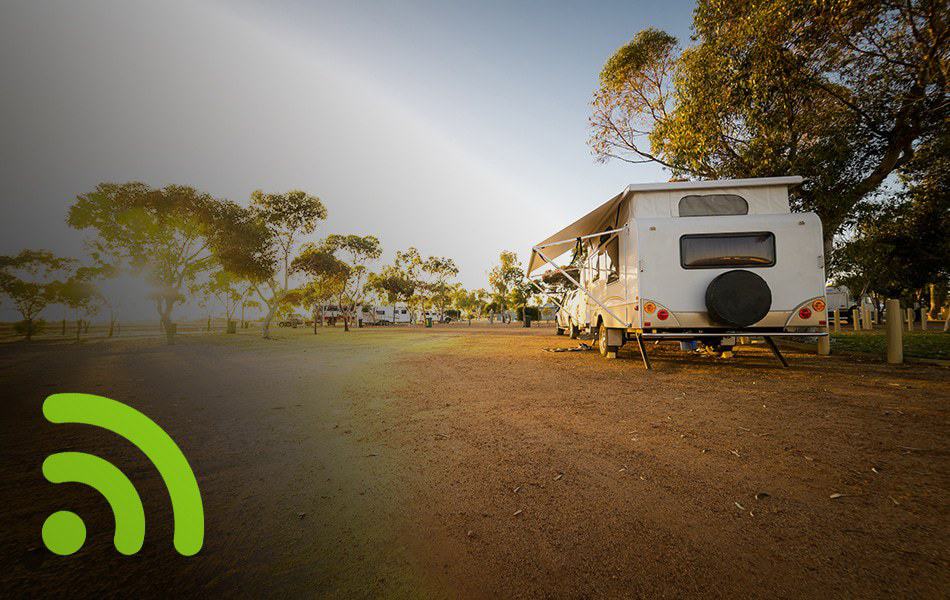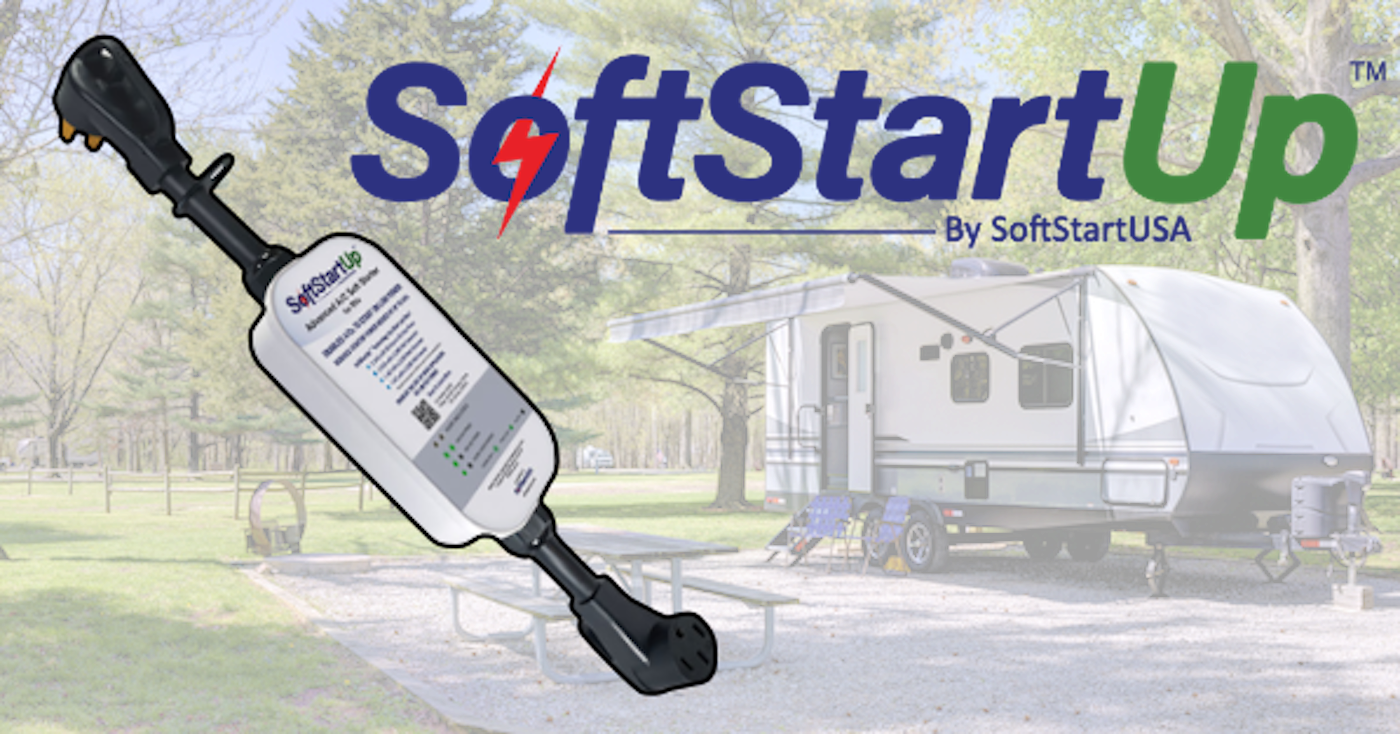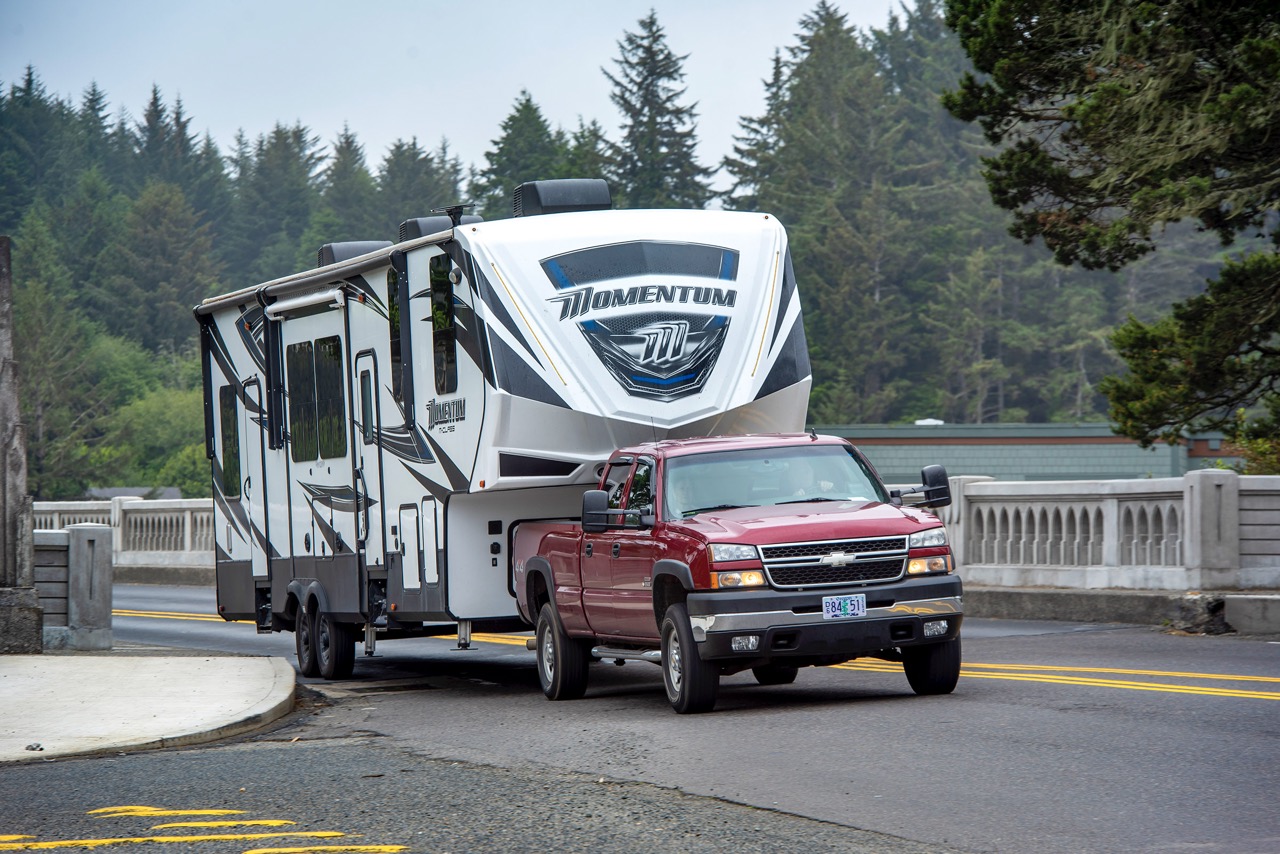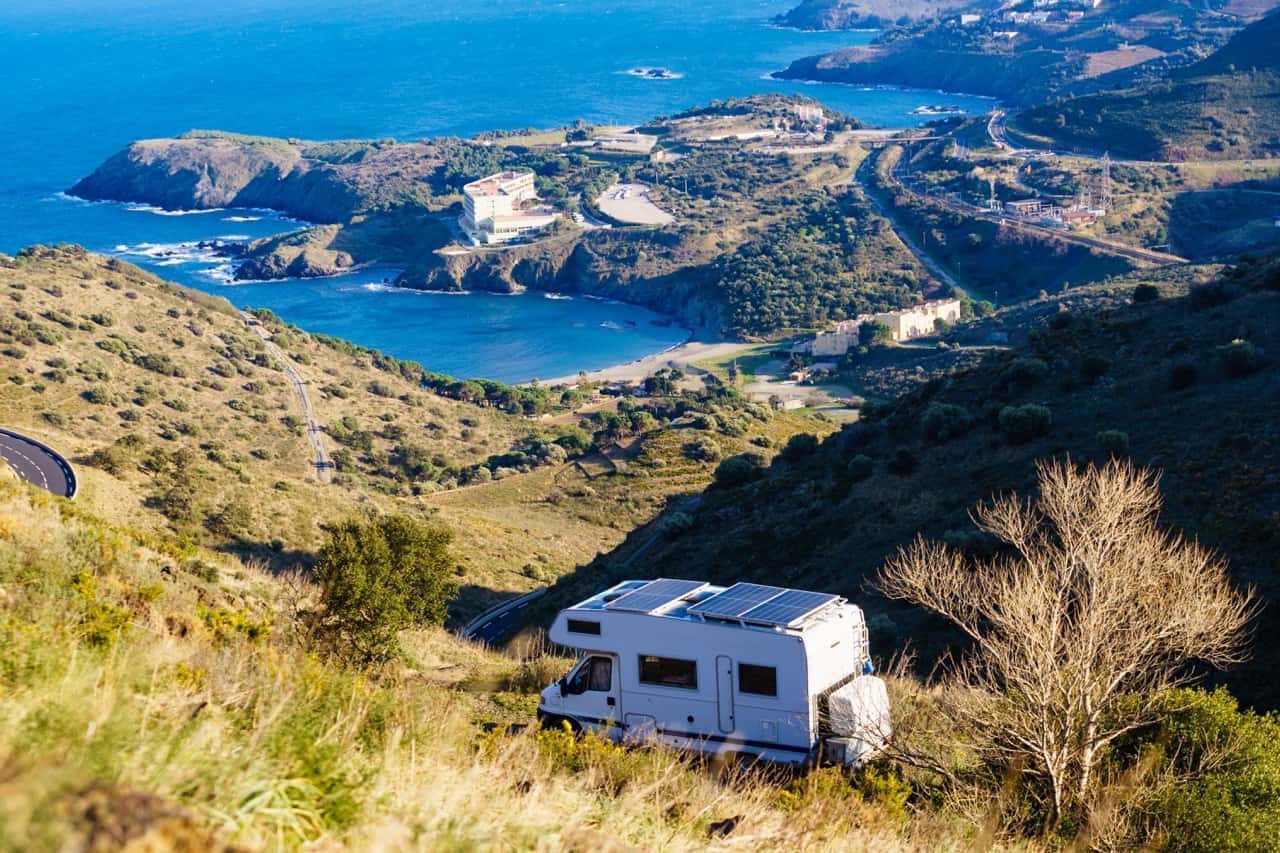
How many times has this happened to you?
You leave your house and go out for a while. During your adventures, you assume your phone is connected to the Wi-Fi, only to find out the hard way that wasn’t the case when you get slammed with an astronomical data overage on your bill.
It’s easy to get blasé about Wi-Fi since it’s so common. These days, you can find Wi-Fi just about anywhere. From your local McDonald’s to that laundromat around the corner, many retailers offer free Wi-Fi to customers. They kind of have to since people today are so connected.
Is it easy to stay connected when in your RV? After all, you may be one of those lucky people who get to travel the world while still making money by working remotely.
What kind of Internet can you expect on your travels? Does your vehicle itself have Wi-Fi or will you be left relying on shaky network connections that will come and go as you travel? In this article, I’ll fill you in on everything you need to know.
Do RVs Have Wi-Fi?
The answer is yes and no. If you clicked this article hoping there’d be some way to get a router in your RV that has reliable Internet everywhere you go, then sorry to disappoint you. You can set up a router in your vehicle (but more on that later) or connect to Wi-Fi while parked, but once you hit the road, the Internet becomes spotty.
Your RV will not have its own dedicated network in which to connect to unless you keep it stationary. All that said, you do have plenty of ways of getting Internet. Some require you to spend money while others necessitate some craftiness, but all will let you surf the web from the comfort of your RV.
How to Get Internet on Your RV
There are four ways you can connect your RV to the Internet: satellites, wireless cellular Internet, Wi-Fi, and DSL/dial-up. I’ll now explain each of the four methods in much more detail.
Satellite Internet
Let’s get the most expensive option out of the way first, because satellite Internet sure ain’t cheap. With this method, you either buy an auxiliary unit or a rooftop satellite that is installed atop your RV. When your vehicle is not in motion, you can get Internet whenever you want, wherever you want it.
Manually-mounted units attach via a tripod. You’ll pay roughly $1,300 for installation, sometimes as much as $1,700 for more expensive satellites. Oh, and installation is just the beginning of what you’ll shell out. You still have to pay for satellite Internet service like you would an Internet package back home. This may start at $59 monthly depending on the Internet provider you choose.
Before you can get satellite Internet on your RV, you have to find someone who’s willing to set it up for you. In Canada, a company called Tech Mobile provides manually-mounted satellite installation. You can also look into Mobile Internet Satellite if you’re based in the United States.
Your other satellite option is an automatic roof-mounted unit. The main company that provided these services for RV owners like yourself was known as Motosat. They’ve since gone defunct, though, which means it’s tougher to find a company to install an automatic roof-mounted satellite.
RF Mogul is the only other comparable company, so prices may be higher due to limited competition.
Now, these are just the companies that install the Internet satellites. After that job is done, you need to find an Internet provider. Forget your AT&T or Verizon. You need specialized Internet access. The options include:
- HughesNet (arguably the most popular option)
- SkyWay USA
- WildBlue
I’ve provided links to all the providers so you can compare plans and make your own choice about which one is best for your online needs.
The mandatory equipment for RV satellite Internet includes PC cables, a satellite modem, indoor installation equipment, and outdoor installation equipment. You could provide some of this equipment yourself if you can. Otherwise, expect to be charged extra during installation.
What do you get for all the money and trouble you spent on satellite Internet for your RV? Reliable Internet, of course, even in areas where there’s next to no Wi-Fi options. If the sky is unobstructed, your satellite can connect you to the ‘net. It’s that simple.
If there’s inclement weather, you will obviously have to shield your satellite, most likely with a cover. If the satellite is blocked, receptivity cannot occur, which means no Internet for you. Others who have used satellites for Internet access on an RV have reported access limits and slow downloads.
Only you can decide if those downsides are worth the money.
Wireless Cellular Internet
If you already have a wireless cellular Internet provider back home, then you can rely on this provider when you’re on the road in your RV. Now is when you’d use your plan with T-Mobile, AT&T, Sprint, Verizon, and the like.
You have a few options for wireless connectivity. You can get a wireless networking device, typically an air card (which is just a fancy USB) that hooks you up to your wireless network of choice. Mobile hotspots, if they exist under your carrier, cut out all the wires and may be more convenient.
Alternately, you can create a modem using your phone. With a Bluetooth, infrared, or USB cable, you link your phone to your computer and get Internet that way.
You can also just connect your smartphone or tablet to your network and go from there. This is how you’d use the Internet back home.
If you’re the type who lives in your RV full-time and you have to get work done, admittedly, doing it all on a phone might not cut it.
Not only that, but no matter which of the three wireless Internet options you choose, you’ll be limited on how much data you can use. Service can also be spotty; those service maps you see during Internet service provider commercials exist for a reason. You may have speed issues and downloads might lag as well.
Wi-Fi
You can also use good, ol’-fashioned Wi-Fi. It’s not glamorous and it’s not guaranteed, but hey, it’s better than chewing through your data in an afternoon.
If you’re the type who likes to stay at parks or campsites, a lot of these now provider Wi-Fi Internet for their visitors. When you camp out for the night, the kids can scroll through Facebook, play games, and otherwise keep from complaining because they’re bored.
Of course, as soon as you leave the campground, you leave the Wi-Fi with it. Luckily, it’s not too hard to find places that offer Wi-Fi during your travels. Try any restaurant, convenience store, department store, café, truck stop, train station, or airport and you should be able to connect for a little while.
Do keep in mind that some places will charge you to use their Internet. This might happen at a campground, too, so always ask before you connect.
What do you do about connecting to the Internet once you take off in your RV? Can you still get Wi-Fi? Sure, but you’ll be playing the reconnect game every couple of miles as you gain and lose access to networks. That’s because the networks are stationary and you’re not.
My best recommendation, especially if you’re traveling with kids or teenagers, is this: buy an extra big data plan before you leave for your road trip. Allot your data usage wisely. Tell the kids to avoid playing games or streaming videos when you’re not connected to Wi-Fi. Stop often and connect to Wi-Fi when you can.
This will keep you and the family from overusing data while also avoiding going crazy because there’s no stable Internet.
DSL or Dial-up Internet
You might stay at a campground that offers dial-up or DSL Internet connectivity. That’s your fourth option for getting Internet in your RV.
Depending on where you go, the campground might provide cable or phone connections for the Internet per campsite. If so, then you’ve scored a pretty sweet deal. You can expect fast connectivity speeds, which means being able to download files and watch streaming video without lag or other interruptions.
Not all campgrounds have such a great setup, unfortunately. Some simply run on a dial-up modem. If you’re old enough to remember the days of dial-up Internet (and it’s okay, I definitely am), then you also recall what a pain it was to get online. You had to wait minutes to get the Internet up and running, and it often felt like hours. If someone needed to use the phone, you were bumped offline. Even being online was painfully slow. If you don’t remember dial-up, then consider yourself lucky.
Relying on a campground dial-up modem is not only slow, but it’s restrictive. Just like the days of waiting your turn while your sibling used the dial-up Internet, you’d be transported to those days of AOL discs in the mail. Now though, instead of just waiting for one other person, you could be waiting for half the campground. When you finally get that sweet, sweet Internet, you might only be allotted 10 or 15 minutes of use before you have to let someone else get online.
Using your own data is almost tempting in this scenario. (Although seriously, I don’t recommend it.)
Tips for Using the Internet without Blowing Your Data
Even today, data is a commodity. It’s expensive, and if you or another family member eats through data like leftovers, you’re going to get a huge phone bill at the end of the month.
That’s not fun for anyone. Fear not. I’ve found some pretty handy tips for conserving data even if you still want to use your phone without (gasp!) Wi-Fi.
- Plan data usage day by day and divvy it up by family member. This may sound a little extreme, but trust me when I say it’s worth doing to avoid a data overage.
- Track your data usage. If you have an iPhone, you can tap “Settings,” then “Cellular.” From there, you can track cellular data, including how much you’ve used this current period. Just be sure to restart the data ahead of and after your trip, as it doesn’t update on its own!
- Only stream video when you’re on Wi-Fi or an otherwise stable Internet connection. Few activities blow more data than streaming video.
- Find other ways to keep yourself and the family entertained. If your family is a big fan of watching movies and TV shows, then you can always rent/buy your favorites on BluRay or DVD. Have a Netflix account? Did you know that you can download movies and TV shows from the Netflix library straight to your phone, tablet, or laptop? Obviously, you want to do this only when connected to the Internet. You can’t get every movie, but there are tons available. Lastly, you can get a device like Roku to watch TV on an actual television and not just your phone.
- If you’re tired of slow Internet, a cellular signal booster may be able to speed it up. These can cost anywhere from $20 to $300+, and obviously you get what you pay for. It’s only recommended you go this route if you often work on the road.
- Only let the kids play games when you have a stable Internet connection. While not all games are data hogs, if your kids get lost in a mobile game for hours, that will still deplete lots of data.
- Make sure your apps are truly off! It’s not enough to hit the “home” button (or your phone’s equivalent) when you’re done using an app. You have to double-tap the home button and you’ll see how many apps are still open on your phone. These apps will run in the background and use data.
Conclusion
Unless you spend hundreds, sometimes thousands of dollars on an RV satellite, then your vehicle won’t have a stable means of getting the Internet while on the road. When you’re stopped, you can use cellular Internet from your service provider, Wi-Fi, or even (gulp), dial-up Internet.
If you’re like most people and you’re dependent on tech (or have kids who are), then make sure to plan frequent stops in your route to areas that have Wi-Fi. The same goes if you’re a full-time RVer who does work on the road.
My final point is this: always, ALWAYS keep data usage in the back of your mind. Track it daily and divvy up data usage for the day if you have to. Whatever keeps you from overpaying on your phone bill is a viable method.
Good luck and may your Internet be plentiful!
[author title=”About the Author” style=”font-family:lato;”]



